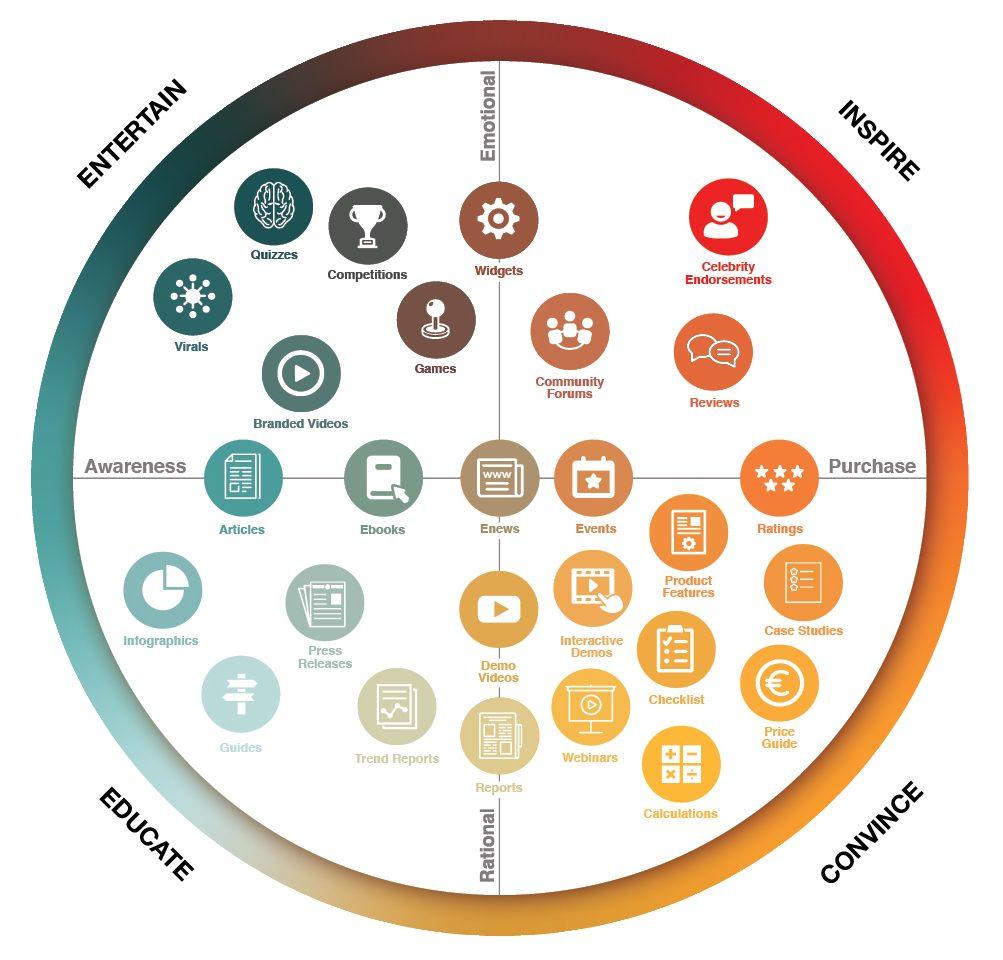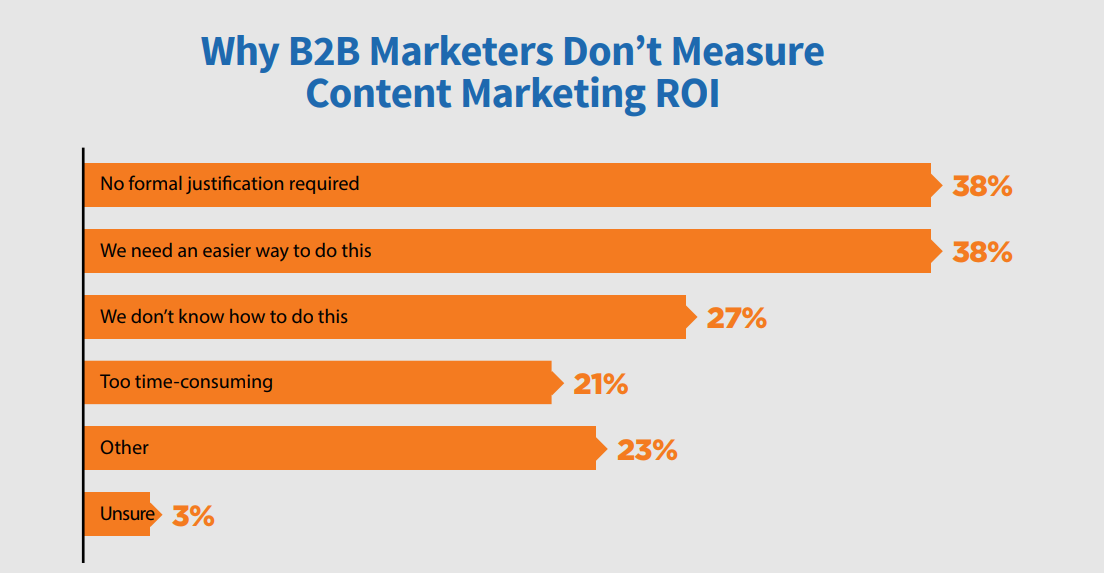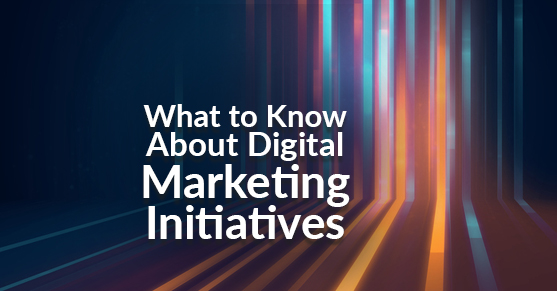As a result of today’s digital business economy, CEOs need to validate and invest in marketing initiatives. That said, the ROI of the big bucket of ‘marketing’ can be fuzzy to measure, people didn’t use to be so digitally-oriented and connected to the Internet of Things, and marketing earned a reputation for spending money without being fiscally aware of the impact on the organization. According to a study by the Fournaise Group, 69% of CEOs believed that marketers live in marketing ‘la-la land’. But that was then – this is now.
Digital marketing has changed how business is done on just about every level. Smartphones accelerated the shift in business toward digitization and relationship personalization. People are spending increasing amounts of time on digital media and on various digital channels. Since everyone is a consumer, everyone – employees included – has experiences with digital marketing. Those experiences set expectations. So both customers (potential and current) AND employees now expect their digital experiences with any brand to rival their last best experience with a brand. That sets the bar high for every business now because it means organizations are now competing with industry leaders for attention. Think Amazon, Uber, Airbnb, Netflix… you get the idea. Digital marketing matters.
But, just to play devil’s advocate, what if CEOs don’t think digital marketing matters? What’s at stake?
What Happens When Digital Marketing Isn’t Valued
To begin with, the organization loses access to digitally-empowered audiences. By not staying current with how people want to communicate, the organization becomes out of touch and cannot reach those potential and current customers in the way those people want to experience that company’s brand. That opens the door to competitors being able to swoop in and own market share. It also means the organization does not have their finger on the proverbial pulse of their industry so they are out of touch with emerging opportunities, markets and connection points (Source).
This all sets the stage for CEOs to be digitally savvy and think differently about digital marketing initiatives. And there is some good news in that.
Digital marketing ensures the consumer has the information and ability to make informed decisions.
Altogether, marketing has become more sophisticated – it’s no longer enough to have hyperbole and claim to have the ‘next big thing’ because people are numb to that message. What works now is a form of ‘lean’ marketing, where the emphasis is on delivering value throughout the customer lifecycle (from attraction through advocacy). This value is delivered through a broad range of tools – everything from ebooks and data sheets to gamification, videos and online tools – through each stage of customer engagement.

Key Digital Marketing Metrics
Understanding the customer buying journey has created a level of complexity and a flood of data that, when analyzed, yields deep insights that support more personalized marketing and relationship-building. To integrate that into actionable intelligence, CEOs want to know what marketing tactics are making a real impact on profitability and competitive advantage in their industry. Fortunately, digital marketing is more measurable than many forms of marketing. (Marketers – listen up!) CEOs want to know five key marketing performance metrics: customer acquisition cost, customer lifetime value, website traffic, conversion rate, social media engagement (Source).
Interestingly, according to a survey done by the Content Marketing Institute, 38% of B2B marketers don’t measure the return on investment for content marketing because they are not required to do so. Another 65% either don’t know how or need an easier way to report back. The most revealing statistic is that 21% think reporting results is too time-consuming but compared to what – marketing without documented results?

Strategy is the Vital Differentiator for Success
In terms of personal experience, both for me as a CEO and for my organization, we did not have the goal to become digital marketing experts, nor did it happen overnight. Our results and my perspective has taken time – as in, over years – for trying things and tweaking them continually for incremental improvement.
Did we make mistakes along the way? Yes. Did we learn as we went? Absolutely. Did it rock my world as CEO from time to time? I wouldn’t be telling you the truth if I said I was always comfortable with the recommendations of my team; even so, I couldn’t deny their front-line expertise. And, because I happen to love technology, I was willing to learn and experiment with digital marketing initiatives.
One of the most significant ways to optimize your digital marketing investments is to put a strategic framework in place that supports your overall business goals and targets. To be clear, a strategy simply makes the most of allocating your resources properly to optimize your capacity in achieving your goals.
How do you know if you need a strategy? Here are the top ten indicators of what can help your organization make the most of digital marketing initiatives.
1. Your organization is unclear in your purpose. You must know why your organization exists and the difference you are making for your customers, employees, and stakeholders.
2. Your organization does not know your online audience or how much market share you ‘own’. It is essential that you know who you are targeting, how visible you are with them currently and who is the leader in your space.
3. If start-ups and current competitors are gaining market share, visibility, and authority, it is time to analyze your situation and determine what you are going to do to establish your leadership.
4. Your organization must have a clear value proposition, meaning that you have a statement that explains your relevancy in solving customer problems or meeting their needs, delivering customer benefit, and what differentiates your solutions from others in your market. This value proposition should be evident at all major entry points to your online presence.
5. Your organization needs to know your customers – their buying journey, triggers, motivations, interests, needs, wants, fears, stakeholders, decision-makers – so you can ensure you are adding value at every touchpoint in your relationship with them.
6. If your systems, processes, protocols, teams or workflows are not integrated, your outcomes will be fragmented in some way. That fragmentation could cost you business in terms of missed opportunities, a gap in personalization, overlooked revenue sources and more. Integration is more than a technology term – it is the way of success for modern business.
7. If your organization doesn’t have enough, or the right, people in place to execute on digital marketing initiatives, or doesn’t have an appropriate budget, your results will reflect those limitations.
8. When you have aging IT infrastructure, rely on manual processing at any point in any customer- or operational process, and/or you are not measuring your results, you could be duplicating your efforts and are most certainly wasting resources.
9. When you are not setting the pace, tone or expectations of your market, and/or you are not agile enough to pace your industry (much less lead it), you need to get a plan in place immediately. Agility, innovation, meeting customer needs and wants real-time, managing disruption, sorting chaos into order… these are the everyday opportunities that successful companies handle with resilience (and strategy).
10. Your organization needs to optimize all your marketing activities and opportunities. If you are hard-pressed to know what that means or are not investing in learning so you can refine the next round, you’re creating ripe conditions to experience opportunity cost on multiple levels.
Strategy is the one way you can systematically and thoughtfully address each of these indicators of potential stress. Some of them may be more obvious than others; if you can’t see them on your own, institute a 360-degree feedback process so your team can share what they see from their vantage point(s).
The Bottom Line
Marketing is the engine that drives the organization forward, and today’s successful CEO must understand, align with and support the value digital marketing initiatives generates for their company through various initiatives. Some digital marketing initiatives have a little more history – like SEO, PPC, and social media – while others are growing (mobile, app dev and retargeting).
Regardless of the channel, format or campaign, the point is to recognize that digital marketing is the new frontier of reaching customers where they figuratively live – online.
If you are a CEO and looking to start or expand your current digital marketing initiatives, feel free to ping me for a conversation. As your peer, I would be happy to share our experiences and, from a very practical standpoint, help you determine what could be most pivotal to you in evolving your perspective, practices, and priorities around digital marketing initiatives.
This post was originally published to Linkedin.

